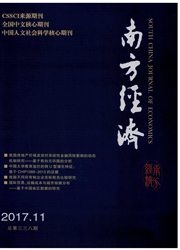

 中文摘要:
中文摘要:
考虑上下级政府之间的信息不对称,本文分析了地区竞争背景下“跑部钱进”现象对于最优资源配置的影响,以及上级政府如何通过设计最优资源配置合同来尽可能减少资源配置的扭曲程度来实现次优结果。主要研究结论表明:(1)当参与“跑部钱进”的相对成本比较大时,上级政府的最优策略是对“跑部钱进”进行抵制,反之,最优策略是默许;(2)当上级政府抵制“跑部钱进”时,应该赋予私有信号更多的权重;而当上级政府默许时,应该赋予公共信号更多的权重;(3)次优结果下的资本配置扭曲主要表现为投资不足或投资过度,通过建立上下级政府之间的“利益捆绑”机制不仅可以减轻配置扭曲程度,还可以减少事后道德风险。
 英文摘要:
英文摘要:
Taking into account asymmetric information between the lower level and higher level government, this paper analyzed the phenomenon of "running to ministry for money" (RMM, seeking financial support and special administrativeauthority from the center by lobbies) in the background of local government' s competition, its effect on the optimal resources allocation, and how the government of higher level can design optimal contract to lessen the degree of allocation distortion. The main conclusions are as follows ~ ( 1 ) When the relative cost of RMM is rather large, the optimal strategy for the superior authority is to deter, otherwise, the optimal strategy is to allow the existence of RMM; (2) When the superior authority decide to deter RMM, she should commit to investment contracts that place more weight on private signals; while RMM is allowed, she should place more weight on public signals; ( 3 ) The distortion of capital allocation under second -best is mainly manifested by underinvestment or overinvestment. Furthermore, establishing interest bounding mechanism between superior and inferior government, can not only mitigate the degree of distortion but also reduce the risk of ex post moral hazard.
 同期刊论文项目
同期刊论文项目
 同项目期刊论文
同项目期刊论文
 期刊信息
期刊信息
